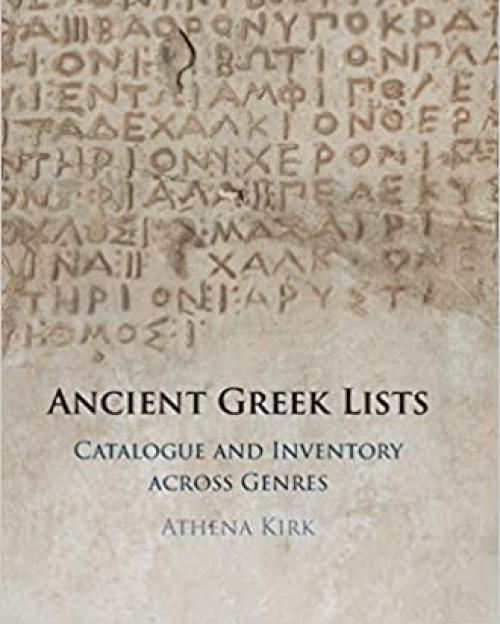Athena Kirk, assistant professor of Classics in the College of Arts and Sciences, published a new book, “Ancient Greek Lists: Catalogue and Inventory Across Genres,” with Cambridge University Press on March 11.
In the book, Kirk argues that the list form was the ancient mode of expressing value through text, examining the ways in which lists can “stand in for objects, create value, act as methods of control, and approximate the infinite.” Kirk looks at a variety of texts, including Homer’s famous catalogue of ships in “The Iliad,” the Hesiodic Catalogue of Women, and Greek temple treasure inventories.
The book originated from Kirk’s Berkeley dissertation and her interest in poetic catalogue, temple inventories and Greek literacy more generally. Her focus on lists allowed her, she says, “to think about a text-form that cuts across the literate-oral boundary” in ancient Greece and to tackle questions of ancient visual and aural experiences in both literary and documentary evidence.
Asked how the project has changed from initial idea to final publication, Kirk said, “The book has incorporated a much wider range of texts than I had initially imagined and extended into literature I hadn’t originally thought it would. I’ve also come to realize that while the idea of oral and literate media presents a rubric of sorts, there are a lot of other ways of conceptualizing lists, such as within systems of value, or as markers of both quantitative and qualitative knowledge.”
One challenging part of writing the book, Kirk said, was handling post-Classical and Hellenistic evidence, such as the poetry of Callimachus and Hermesianax and Hellenistic texts which engaged with the Homeric recusatio in the catalogue of ships, describing the content of many of these texts as simultaneously “provocative” and “hermetic.” She found that it took quite a bit of re-working before she was satisfied with these sections.
“Another challenge was getting the printers to print Greek acrophonic numerals correctly!” she said.
Kirk’s next project deals with animals in the ancient world. She taught a seminar titled “Animal Powers” during her Society for the Humanities Fellowship in Spring 2020, focusing on Classical and modern representations of animals as sources of power, fuel, and raw materials.
Her recent talk at Cornell on the Homeric Hymn to Hermes is a part of her current project called “Animal Materialities in Ancient Greece,” which investigates the use of animals in the creative lives of ancient Greeks. “I’m excited about this new direction and will look forward to sharing more of it as it develops,” she said.
Read the story in the Cornell Chronicle.




